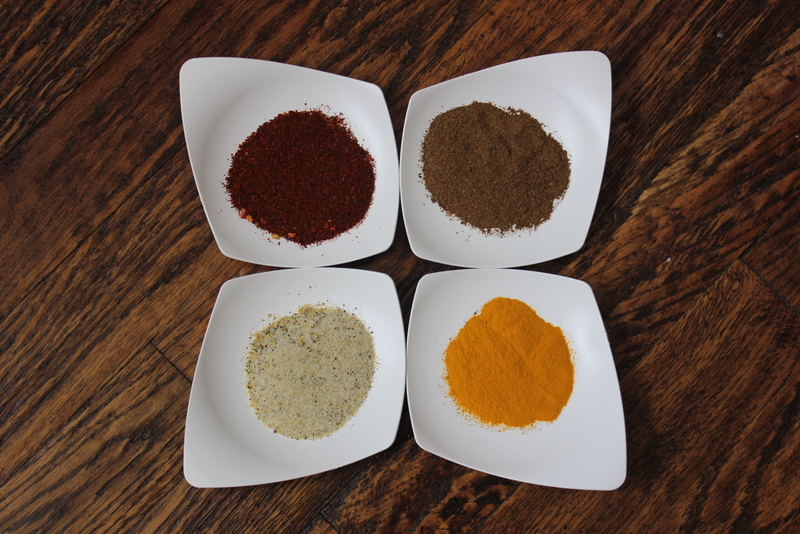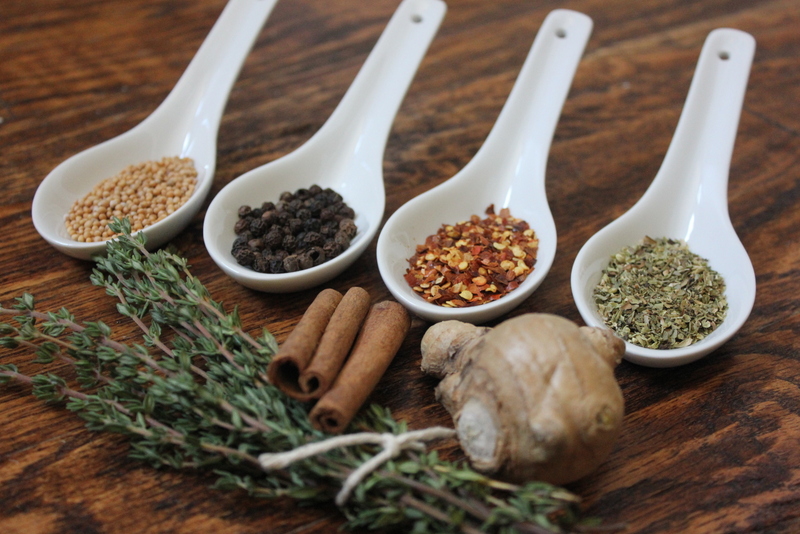-
Evolving Yourself Beyond Salt, Sugar, and Fat
Posted on April 30, 2013 by Becka in Food Musings.Way back when we were living in caves, humans learned that fat, salt, and sugar were precious commodities that our bodies needed to stay alive. Fat helped us survive the long, cold winters; salt was necessary to replace the electrolytes we sweated out in pursuit of prey; and sugar was necessary to help our brains function clearly. But now that we don’t live in caves, those three commodities aren’t nearly as precious. Instead, they are often a nuisance, making us retain water and gain weight.
If you’re trying to cut back on added fat, salt and sugar, there’s another way to liven up your diet while still adding flavor: spices and herbs. Dried versions of both are easy to pick up in the bulk section of your grocery store so you get only what you need and don’t end up wasting the rest of the jar when it goes bad after about a year.
 When cooking with dried spices and herbs, you want to be sure to add them to liquid during the cooking process so that they can rehydrate and provide the maximum flavor possible. To get even more out of your spices, buy them whole, toast them in a skillet, and then grind them in a coffee or spice grinder. You’ll have an amazing aroma fill your kitchen and a robust flavor fill your dishes.
When cooking with dried spices and herbs, you want to be sure to add them to liquid during the cooking process so that they can rehydrate and provide the maximum flavor possible. To get even more out of your spices, buy them whole, toast them in a skillet, and then grind them in a coffee or spice grinder. You’ll have an amazing aroma fill your kitchen and a robust flavor fill your dishes.In addition to flavor, spices and herbs pack a nutritional punch, too. Many are rich in antioxidants and phytonutrients that help protect against disease. Some of the best spices include cinnamon, red pepper flakes, and ginger and can be used in a variety of ways. Cinnamon and ginger are diverse in that they can be used in savory or sweet applications, while red pepper flakes will give any savory dish a nice kick. Some of the best health-boosting herbs include oregano, rosemary and thyme – all of which can be used in marinades – to flavor sauces or roast with vegetables.

When it comes to fresh herbs, they’re great to finish dishes, add to salads, and add flavor to slowly cooked meals. Sometimes you may find that you can’t use the whole bunch you got at the grocery store before it goes bad. Consider planting a few of your own herbs to have on hand so you can snip what you need and let the rest grow. Some easy herbs to grow at home are parsley, rosemary, thyme, and mint.
The next time you think about reaching for the salt shaker, grab a pinch of cayenne or a snip of fresh parsley to liven up your meal instead – your evolved body will thank you.


